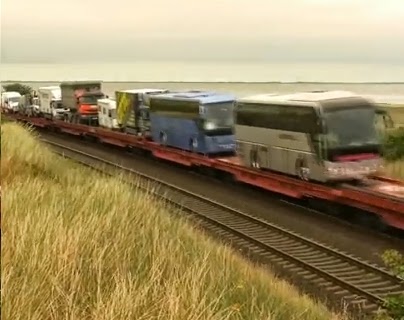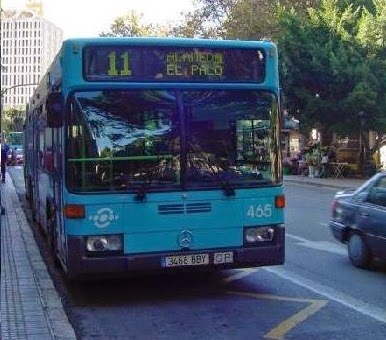Der "Dünen-Express" wird 125 Jahre alt
Dünen-Express oder "Rasende Emma" wurde sie liebevoll von ihren Verehrern genannt- die Sylter Inselbahn. Vor nun 125 Jahren rollten die ersten Waggons gezogen von einer kleinen Dampf-Lokmotive im Schritt-Tempo die vier Kilometer von Munkmarsch nach Westerland. Was für ein Fortschritt! Davor mussten die sonnenhungrigen Sylt-Urlauber vom Festlandhafen Hoyerschleuse mit dem Boot nach Munkmarsch übersetzen. Von dort aus ging es über Stock und Stein auf unbefestigten Wegen im Zuckeltrab mit Pferd und Wagen nach Westerland. Danach waren die Reisenden dann wirklich urlaubsreif.
Dünen-Express oder "Rasende Emma" wurde sie liebevoll von ihren Verehrern genannt- die Sylter Inselbahn. Vor nun 125 Jahren rollten die ersten Waggons gezogen von einer kleinen Dampf-Lokmotive im Schritt-Tempo die vier Kilometer von Munkmarsch nach Westerland. Was für ein Fortschritt! Davor mussten die sonnenhungrigen Sylt-Urlauber vom Festlandhafen Hoyerschleuse mit dem Boot nach Munkmarsch übersetzen. Von dort aus ging es über Stock und Stein auf unbefestigten Wegen im Zuckeltrab mit Pferd und Wagen nach Westerland. Danach waren die Reisenden dann wirklich urlaubsreif.
"Rasende Emma" (Frenzied Emma) is the nickname for the Sylt Island railway which finally closed in 1970.
Weirdly the nickname comes from a poem in which the author wrote that all the gulls looked as if they were called "Emma".
12 seagulls, all called Emma?
Die Möwen sehen alle aus,
als ob sie Emma hießen.
Sie tragen einen weißen Flaus
und sind mit Schrot zu schießen.
als ob sie Emma hießen.
Sie tragen einen weißen Flaus
und sind mit Schrot zu schießen.
The link with railways is lost on fbb! Last year the successor bus company had a big celebration for the 125th anniversary of the opening of the first line from Munkmarsch to Westerland. The day included a massive round-the island-parade of heritage buses and coaches ...
... plus other jollifications. The company is particularly keen on its heritage as it owns two vintage buses.
click to enlarge the picture above
The blue and grey is a Borgward dating from 1952 and is the last of its type in working order. The yellow "Gelbe Oldiebus" is a relative youngster from 1958. Both vehicles are available for group "round-the-island" hire.
The modern fleet is modern.
Wir fahren vor allem Niederflurbusse, worüber sich Rollstuhl- und Kinderwagenfahrer besonders freuen. Insularer Clou der Linienbusse: Alle sind mit Fahrradträgern ausgestattet: falls Sie auf dem Rückweg Ihrer Fahrradtour vom Gegenwind überrascht werden sollten.
fbb's desultory knowledge of German inspires guesses that "Rollstuhle" (rolling stools) and "Kinderwagen" (childwagons) are similar to English accessible provision and probably remembers "Fahrrad" from "O" level days as bicycle. From this we can interpret "Niederfluhrbusse" as low-floor.
Smaller vehicles used on Westerland town services ...
... but some very posh motors find their way on to longer routes and, more usually, tours (inselrundfahrt).
These come in two versions; kleine (small) and grosse (large) and run daily during the Summer season.
fbb will leave his educated readers to "do the math" and convert from € to £. "Erw" is adult, and "Ki" is child (aged 6 to 14).
One other question before we look at the bus services themselves and their publicity. We know that the main route to Sylt is by train, car shuttle, stopping train or inter city express. An alternative route is by ferry from the Danish island of Rømø. The third option is by plane to/from Westerland airfield; here a sample of departures on Friday 8th August.
Syltair runs two flights daily Monday to Friday (one on each of Saturday and Sunday) to Hamburg.
€235 single!
But what of long distance coach travel. Coaches can be seen on the rail shuttles ...
... but these look more like tours or package holidays. fbb has not conducted a thorough search but the evidence of coach route 1013 is telling.
Unter den Linden (Under the Lime Trees)
a major Berlin thoroughfare
Starting from Unter Den Linden (at its junction with Friedrichstrasse) in Berlin it looks encouraging ...
... but you are tipped out at Niebüll to catch the train shuttle; in this case on a sample journey to Morsum.
Maybe more knowledgeable blog readers can elucidate! The German coach market has been opened up to competition in recent months and dozens of new routes are starting, so anything may eventually be available!
Our final task, then is to review the bus services, fares and publicity. One treat to look forward to, however, is to browse the on-line Sylt shop, available on the bus web site.
fbb is considering making up an order for a variety of products essential for any East Devon resident!
-----------------------------------------------------------
Writing Utter Drivel dept
fbb's self-deprecating report of his language teaching skills when on "supply" (blog, 10th July) contained a major bludner.
Malaga is, of course, in Spain. The emergency lessons that fbb took were in Spanish, not Italian. fbb knows even less Spanish that he does Italian if such a minimalistic quantity is possible. Nevertheless, the lessons were still successful. Bus timetables have a universality about them that overcomes most language barriers. But the pupils (fbb refuses to call them "students"!) didn't know that.
Saludos para los autobuses de Málaga!
-----------------------------------------------------------
Next bus blog : Wednesday 13th August

















Here is the complete poem in English. It was written by Christian Morgenstern, a sort of German Edward Lear
ReplyDeleteThe Seagulls
The seagulls by their looks suggest
that Emma is their name;
they wear a white and fluffy vest
and are the hunter's game.
I never shoot a seagull dead;
their life I do not take.
I like to feed them gingerbread
and bits of raisin cake.
O human, you will never fly
the way the seagulls do;
but if your name is Emma, why,
be glad they look like you.
And now a paraphrase of the blurb as we would put it. We don’t drive pushchairs!
Our buses are mainly low-floor. They are a welcome facility fot wheelchair and stroller users.
A highlight
All are equipped with bicycle racks for use if you should be surprised on your return ride by a headwind.